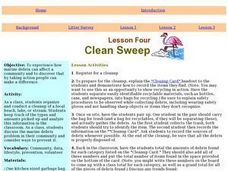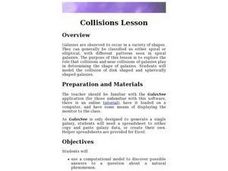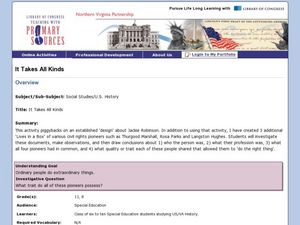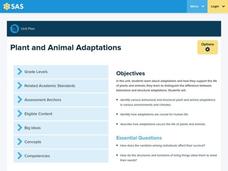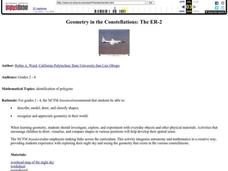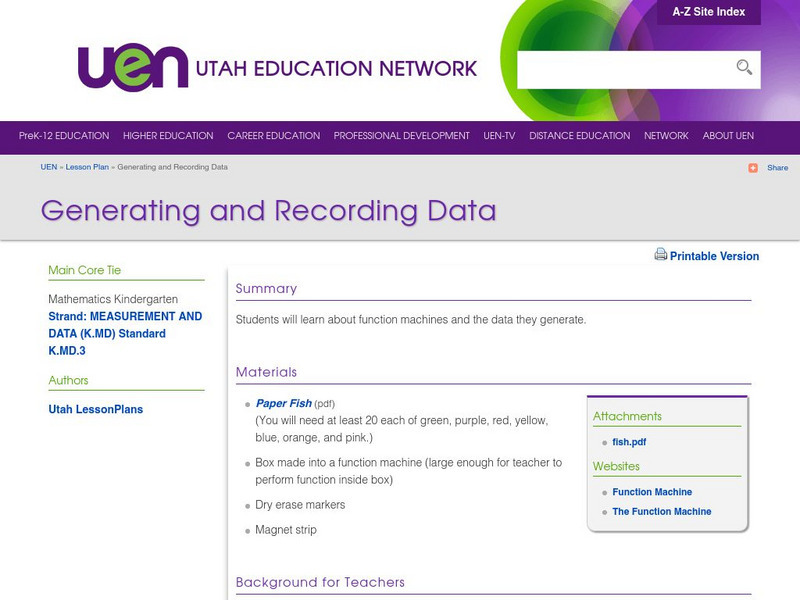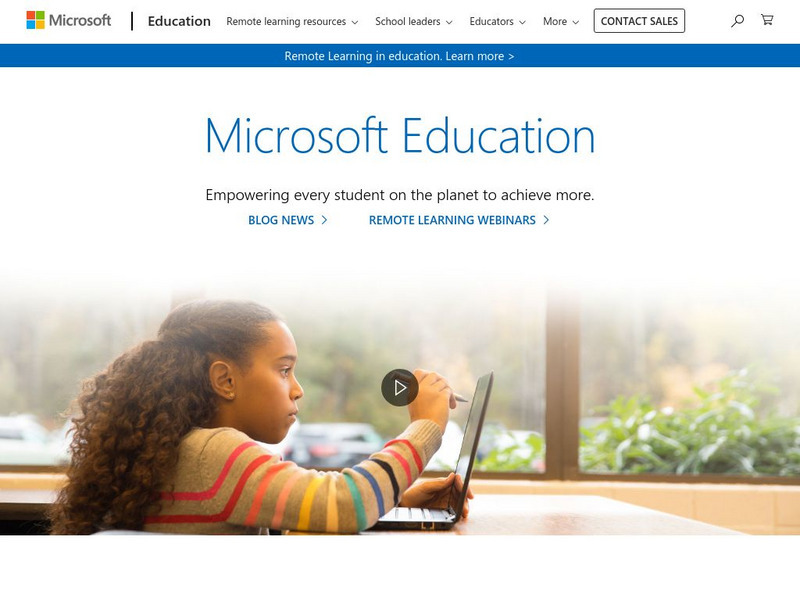Curated OER
Heredity (Mendelian Genetics)
Students observe and record observations of whether a person is a taster or nontaster. They test selected individuals from their families and peer groups and chart all findings to determine which trait (e.g. taster or non-taster) is...
Curated OER
Are You Thirsty? The Effects of Pollution on Drinking Water
Discuss the availability of clean, plentiful water and the causes of water pollution. In groups, sixth graders discuss problem-solving methods for keeping water clean. They explore the function of water treatment plants and perform...
Curated OER
Hey, Look Me Over!
Students make observations about mealworms using hand lenses, rulers, and cotton swabs. Students complete their own mealworm observation chart, then they share their observations with the class. This is one station out of five in an...
Curated OER
Design your own Water Temperature Experiment
Learners use Robolab sensors and software to design an experiment that incorporates the use of temperature probes. They conduct the experiment, complete a lab sheet, evaluate the results and then consider if their hypothesis requires...
Curated OER
Pheed the World: Edible Phyla
Young scholars discuss the contributions of different organisms to our world. In this biology lesson plan, students research countries with limited food supply. They create an improvement plan for a fictitious country assigned to them.
Curated OER
Classification
Second graders sort insects into groups by determining similar characteristics. They role play as Entomologists to sort insects.
Curated OER
Clean Sweep
Students organize and conduct a cleanup of a local beach, lake, or stream. They keep track of the types and amounts picked up and analyze this information in the classroom.
Curated OER
Collisions Lesson
Tenth graders explore the role that collisions and near collisions of galaxies play in determining the shape of galaxies. They model the collision of disk shaped and spherically shaped galaxies.
Curated OER
It Takes All Kinds!
Students view video clips and observe similarities and differences between animals. They sort animals into groups for a zoo. They make a graph of their observations and review scientific classifications.
Curated OER
Picture Tomorrow
Students discuss their plans for the future. they draw pictures of something from their future that they plan to do or be. They display their art work in the classroom.
Curated OER
Where You Belong
Students identify different groups to which they belong, and use counting techniques to take a census of their family and class.
Pennsylvania Department of Education
Plant and Animal Adaptations
Fourth graders identify behavioral and structural adaptations to plant and animal life. In this unit overview, 4th graders discuss the importance of variation and adaptation in a species survival. This is a unit overview and does not...
Curated OER
Geometry in the Constellations: The ER-2
Students discuss reasons to record the location of stars. They view a picture of the night sky, and discuss constellations. Students complete a worksheet of the various shapes they see in the constellations.
Curated OER
Weather Instruments
Students research weather instruments. In this weather instructional activity, students use the Global Climate DVD and take notes on weather instruments. Students answer multiple choice questions on a worksheet.
Curated OER
Are You Thirsty: The Effects of Pollution on Drinking Water
Middle schoolers discuss the different causes of water pollution. In this ecology lesson, students brainstorm ways to purify polluted water. They formulate their conclusion based on the results of the experiments.
Utah Education Network
Uen: Generating and Recording Data
This "fish" activity will help early elementary students develop skills related to categorizing, recording data, developing vocabulary, and counting. An assessment rubric is attached.
Microsoft
Microsoft Education Lesson Plan: Candy Is Dandy
Explore color distribution of M&M candies using this detailed lesson plan. An engaging integrated lesson that requires understanding of spreadsheets and formulas, and logical reasoning. Links to related websites.








